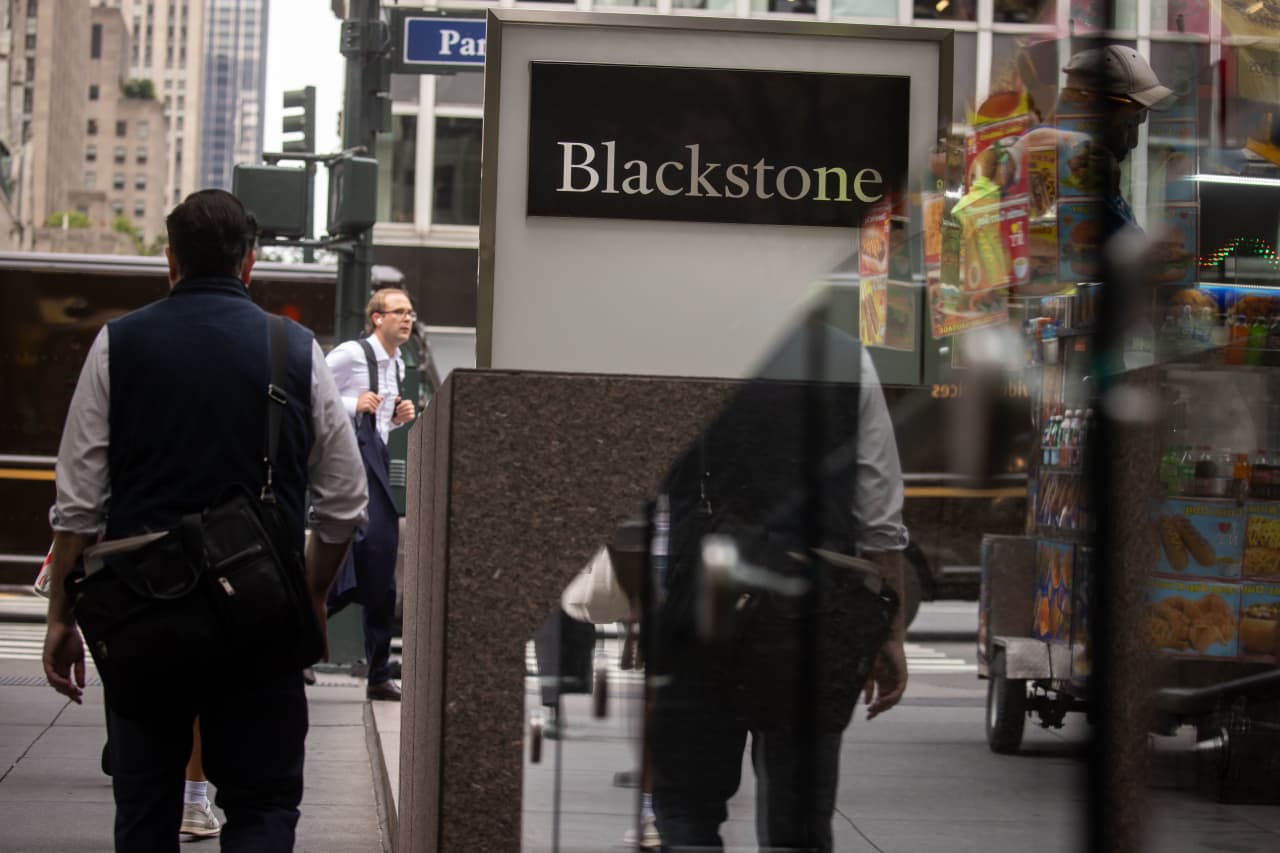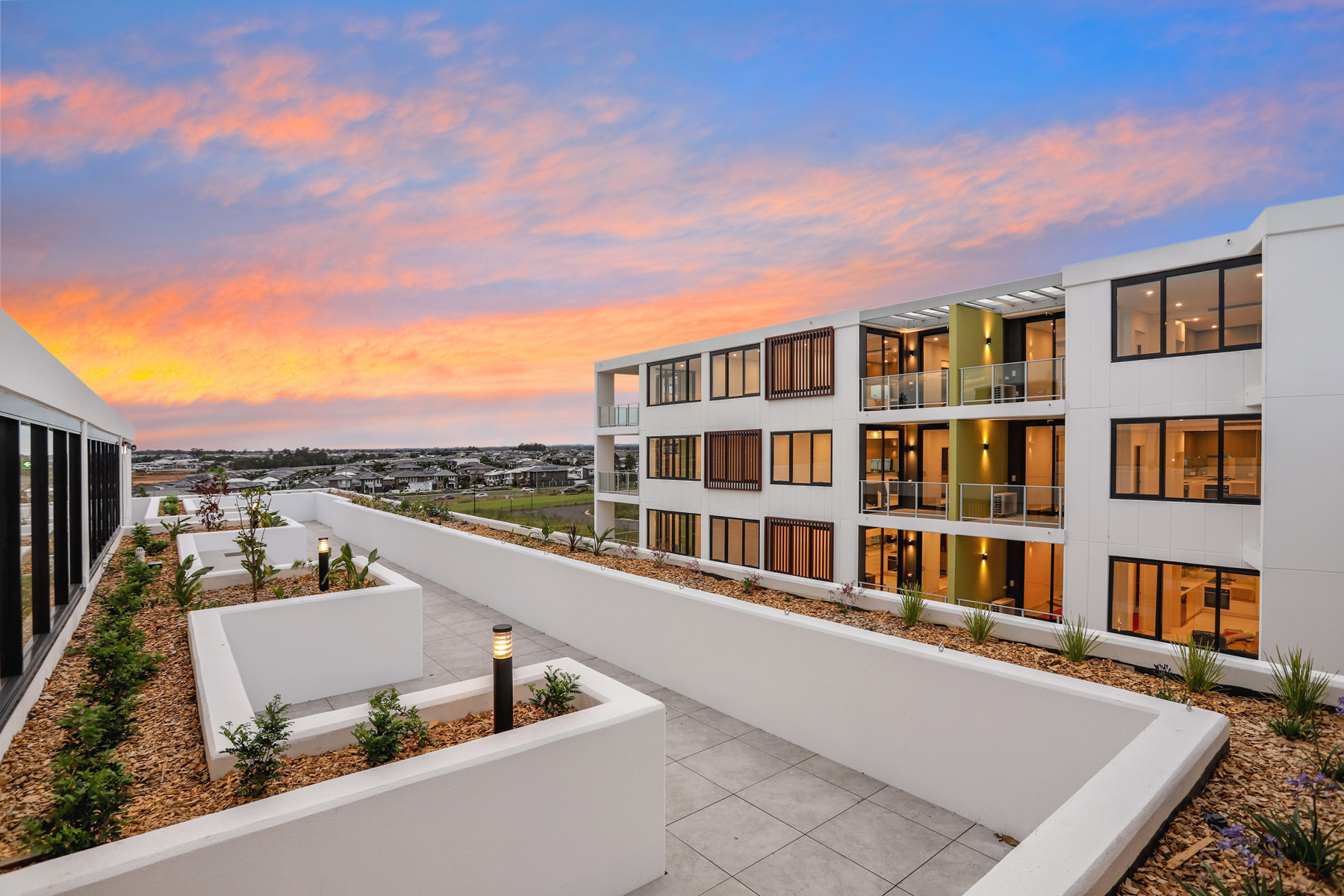Blackstone’s Private-Equity Returns Trail the S&P 500
The S&P 500 index has been crushing private-equity returns in the past year, and Blackstone ’s second-quarter results illustrate that trend.
As part of its earnings release early Thursday Blackstone said its corporate private-equity returns in the year ending in June were 11.3%. That compares with a 24.5% total return for the S&P 500.
In the prior year ending in June 2023, the S&P 500 topped Blackstone with a 19.4% return against 9.7% for the firm’s corporate private-equity business, which has $145 billion of assets and remains one of its most important areas along with real estate.
Blackstone is the leading alternatives firm with over $1 trillion in assets under management and has the largest market value of any public investment firm at more than $160 billion.
Driven by Nvidia , Microsoft , Apple , Amazon and other big technology stocks, the S&P 500 has handily topped most asset classes in the past several years.
Another sign of more difficult times for private equity came earlier this week from Calpers, the $503 billion California pension fund, when it reported it s preliminary returns for its fiscal year ending in June . Calpers is one of the first major endowments or pension funds to report results for the June fiscal year. undefined The pension fund, a major player in private equity, said its private-equity investments gained 10.9% net of fees—although that figure is lagged one quarter. Calpers’ public-equity investments were up 17.5% in the year ended June—its strongest asset class. Private equity remains a favorite of many pension funds and leading university endowments like those of Harvard and Yale. Their view is that private equity can beat public-market returns over the long term.
But the private-equity business has gotten tougher in recent years due to keen competition for deals, higher interest rates and a less receptive IPO market, which has made exits tougher.
And private-equity portfolios of firms like Blackstone look nothing like the S&P 500, given their investments in small to midsize companies.
Blackstone, for instance, bought a majority stake in Emerson’s climate technologies business last year and more recently purchased Tropical Smoothie, a franchiser of fast-casual cafes. It also holds a stake in Bumble, the publicly traded online dating site, and it’s an investor in actress Reese Witherspoon’s media company, Hello Sunshine. Blackstone’s corporate private-equity business runs $145 billion and has 82 investments, according to the firm’s website.
Blackstone’s private-equity business has strong long-term returns including a gain of over 50% in the year ended in June 2021 when it handily topped the S&P 500 index.
But the S&P 500 index has become difficult to beat more recently and it’s dominated by some of the best companies in the world. It carries less risk than private equity, given the cash-rich balance sheets of its leading companies like Apple , Microsoft and Alphabet .
Private-equity firms, by contrast, often use considerable leverage to boost returns. Investors can get exposure to the S&P 500 through index funds that charge 0.1% or less in annual fees and with immediate liquidity.
A key risk with the S&P 500 is its vulnerability to a selloff in the leading tech firms that now make up over 40% of the index. The recent rotation into smaller companies illustrates that.
Blackstone shares gained 1.1% to $136.31 Thursday in the wake of its earnings news as investors focused on rising investment deployments and positive management comments on the firm’s outlook.
The firm’s nearly $40 billion of inflows and $34 billion of capital deployment during the second quarter marked “the highest level of investment activity in two years,” Chief Executive Officer Stephen Schwarzman said in a statement.
Citi analyst Christopher Allen wrote in a note to clients on Thursday that while Blackstone’s overall performance was mixed, the outlook appears to be improving given fund-raising and deployment trends.
Investors also were heartened by Blackstone President Jon Gray’s comments about a bottoming in commercial real estate and strong capital deployment in that area.
But ultimately, the game for Blackstone and its alternatives peers is about performance—particularly beating low-fee public investments like the S&P 500. That seems to be getting more difficult.
 Copyright 2020, Dow Jones & Company, Inc. All Rights Reserved Worldwide. LEARN MORE
Copyright 2020, Dow Jones & Company, Inc. All Rights Reserved Worldwide. LEARN MORE
A divide has opened in the tech job market between those with artificial-intelligence skills and everyone else.
A 30-metre masterpiece unveiled in Monaco brings Lamborghini’s supercar drama to the high seas, powered by 7,600 horsepower and unmistakable Italian design.
A 30-metre masterpiece unveiled in Monaco brings Lamborghini’s supercar drama to the high seas, powered by 7,600 horsepower and unmistakable Italian design.
When Lamborghini takes to the water, subtlety isn’t on the agenda. Unveiled at the Monaco Yacht Show, the Tecnomar for Lamborghini 101FT is a 30-metre superyacht that fuses Italian automotive theatre with cutting-edge naval engineering.
The model builds on the collaboration that began in 2020 with the Tecnomar for Lamborghini 63, a sell-out success that celebrated the marque’s founding year.
This new flagship pushes the partnership between Automobili Lamborghini and The Italian Sea Group to a grander scale, designed to deliver the same adrenaline rush at sea that drivers expect behind the wheel.
“The Tecnomar for Lamborghini 101FT redefines the concept of nautical luxury,” said Stephan Winkelmann, Chairman and CEO of Automobili Lamborghini.
“It is not only a yacht, but an affirmation of Italian excellence. The Italian Sea Group and Automobili Lamborghini share an exclusive clientele who are passionate about beauty, technology, and extreme performance.”
Design cues are unmistakably Lamborghini. The yacht’s sharp exterior lines echo the Fenomeno supercar revealed at Monterey Car Week, complete with Giallo Crius launch livery and signature Y-shaped lighting.
Inside, the cockpit and lounges mirror the DNA of Sant’Agata supercars through hexagonal motifs, sculptural seating and dramatic contrasts. With accommodation for up to nine guests and three crew cabins, indulgence meets practicality on every deck.
Performance is equally uncompromising. Three MTU 16V 2000 M96L engines and triple surface propellers generate a combined 7,600 horsepower, driving the yacht to 45 knots at full throttle, with a cruising speed of 35 knots. Two 35 kW generators provide additional efficiency and reliability, ensuring the yacht’s power matches its presence.
Mitja Borkert, Lamborghini’s Design Director, said: “With the Tecnomar for Lamborghini 101FT, we aimed to create a product that embodies the main design characteristics of our super sports cars. All the details, from the exterior to the colour, to the interior areas, recall and are inspired by Lamborghini’s DNA.”
Presented in scale at Monaco, the definitive Tecnomar for Lamborghini 101FT is scheduled to hit the water at the end of 2027. For those who demand their indulgence measured not only in metres but in knots, this is Lamborghini’s most extravagant expression yet.
Ophora Tallawong has launched its final release of quality apartments priced under $700,000.
A bold new era for Australian luxury: MAISON de SABRÉ launches The Palais, a flagship handbag eight years in the making.





























